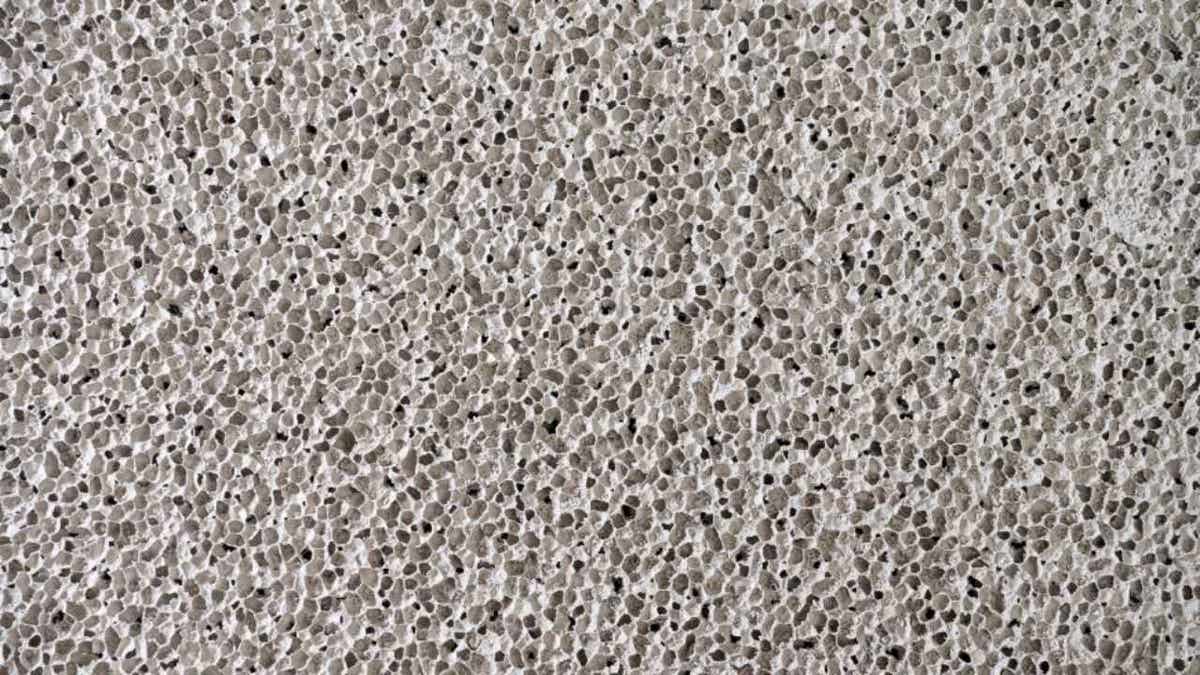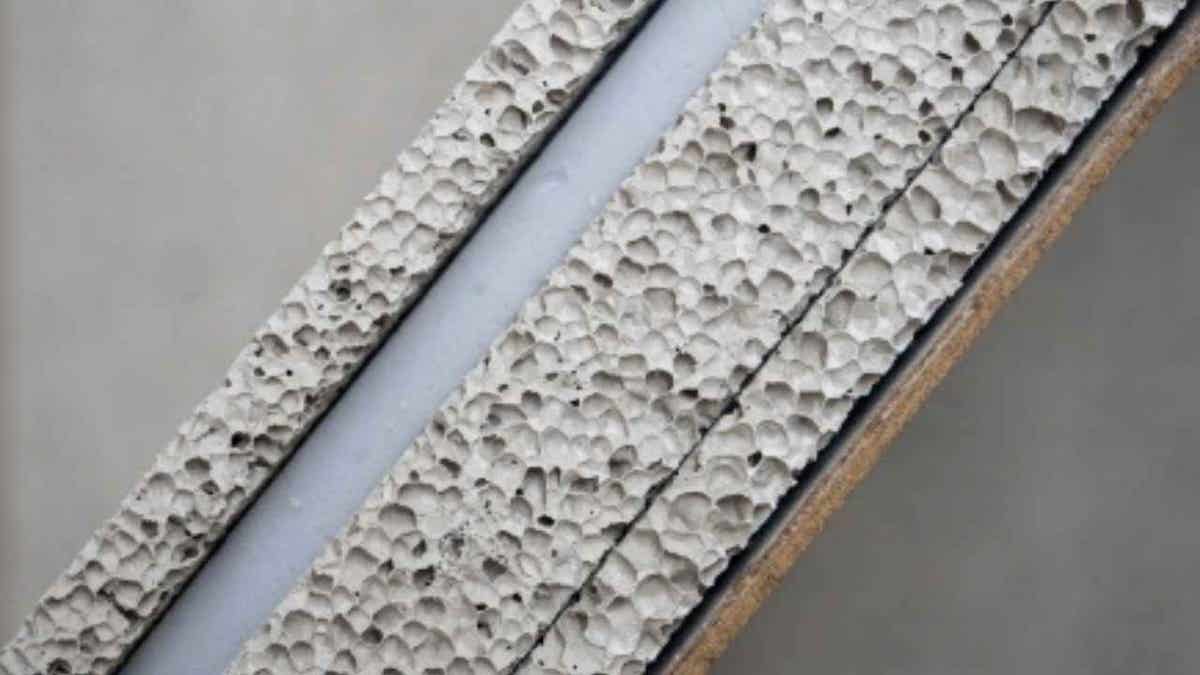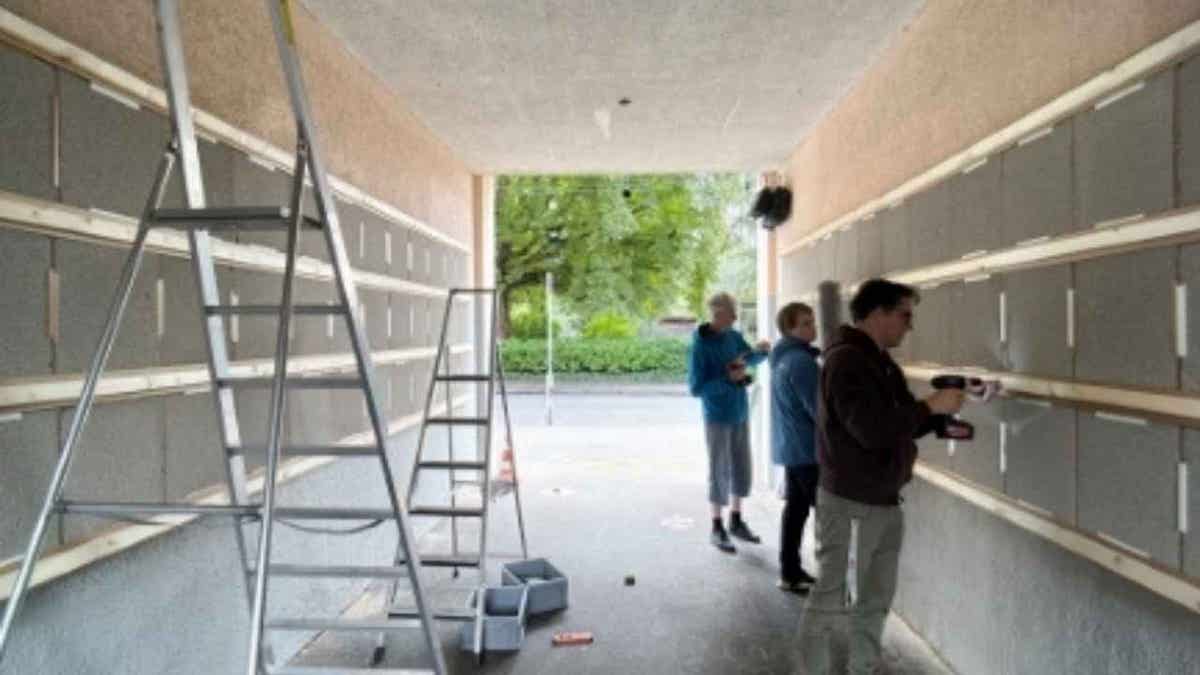-
Wheat Overtakes Corn as Hungary’s Top Crop - about 1 min ago
-
2025 NFL Odds: Travis Hunter Named Starting WR, Second-String CB - 9 mins ago
-
California High-Speed Rail Project Leader Defies Trump - 13 mins ago
-
UC must reconsider ban on campus jobs for undocumented students - 21 mins ago
-
President Congratulates His Newly Inaugurated Polish Counterpart - 35 mins ago
-
Katy Perry joins other stars who dated politicians with Justin Trudeau rumors - 38 mins ago
-
Diamondbacks 31-Year-Old, 215-Pound Outfielder Sets Insane MLB Record - 52 mins ago
-
2025 NFL Preseason Odds: John Harbaugh Best ATS; Dan Quinn Worst - 52 mins ago
-
Trump immigration team revives once-shelved deportation cases - about 1 hour ago
-
Dozens missing after deadly mudslide tears through Indian village - about 1 hour ago
Ultra-thin sound blocker cuts traffic noise dramatically
NEWYou can now listen to Fox News articles!
If you live near a busy street, this new breakthrough from Switzerland could offer some long-awaited relief. Researchers at the Swiss Federal Laboratories for Materials Science and Technology (EMPA) have developed an ultra-thin traffic noise absorber that significantly reduces sound levels while occupying just a fraction of the space required by traditional materials.
The new absorber is only about 2.1 inches thick, yet it performs on par with much bulkier products, such as rock wool. Even more impressively, it can be customized to target specific types of noise, making it ideal for a variety of indoor and outdoor settings.
Sign up for my FREE CyberGuy Report
Get my best tech tips, urgent security alerts, and exclusive deals delivered straight to your inbox. Plus, you’ll get instant access to my Ultimate Scam Survival Guide – free when you join my CYBERGUY.COM/NEWSLETTER.
SUSTAINABLE 3D-PRINTED HOME BIULT PRIMARILY FROM SOIL
Ultra-thin traffic noise absorber. (EMPA)
How the new material works
The innovation lies in the material’s composition: a multi-layered mineral foam made from gypsum or cement. Each layer contains pores of different sizes, designed to force air particles to travel in longer, more winding paths. That extended journey helps dissipate sound waves more efficiently than flat or uniform insulation.
EMPA researchers also use numerical modeling to simulate how sound will move through the material. By adjusting pore sizes, perforation patterns, and layer thickness, they can fine-tune the acoustic performance for a specific space or type of noise. This kind of control makes the absorber suitable for locations ranging from quiet stairwells to bustling office environments.
WHAT IS ARTIFICIAL INTELLIGENCE (AI)?

Ultra-thin traffic noise absorber. (EMPA)
Real-world test in Zurich
To test the material in a real-world setting, the EMPA team installed a prototype in a driveway in Zurich. They covered roughly 130 square feet of wall space with panels just over 2 inches thick. One end of the driveway opens onto a busy street, while the other leads into a quieter courtyard.
The results were immediate and measurable. Traffic noise dropped by as much as 4 decibels. The sound reduction was most noticeable when cars entered or exited the driveway, since the panels caused the noise to bounce multiple times before reaching the courtyard. For context, a 4-decibel reduction is sufficient to noticeably reduce the irritation caused by street noise, especially in densely populated urban areas.

Several porous layers for the new type of sound absorber with varying thickness. (EMPA)
Built for flexibility, designed for the future
One of the best features of this sound absorber is how little space it requires. Traditional insulation materials tend to eat up valuable inches, limiting where they can be used. This thin, dense material offers more freedom for architects, interior designers, and developers to include noise protection in areas where every inch matters.
GET FOX BUSINESS ON THE GO BY CLICKING HERE
The panels can also withstand outdoor elements. They are weather-resistant, fireproof, and made of recyclable materials, making them both durable and environmentally responsible. Because they do not release harmful particles, they are also safe for indoor use in places like schools, offices, and apartment buildings.
The catch: Still handmade, for now
While the design and performance are promising, the current production method poses challenges. The panel perforation is still done manually, which makes it time-consuming and difficult to scale. However, EMPA is already working with Swiss manufacturer De Cavis to streamline production and prepare for broader commercial use. Once automated, this material could become a standard feature in construction projects where noise control and space efficiency are both top priorities.

Sound absorbers tested in a driveway in Zurich. (EMPA)
What this means for you
If you’re dealing with constant background noise from traffic, nearby businesses, or shared walls, a product like this could be a game-changer. A thinner absorber means you can finally enjoy peace and quiet without sacrificing living or workspace space.
Whether you’re a homeowner looking to quiet a bedroom wall, a property manager renovating an apartment complex, or an architect designing a new office building, this material opens up possibilities that simply didn’t exist with traditional insulation.
CLICK HERE TO GET THE FOX NEWS APP
Kurt’s key takeaways
Noise pollution doesn’t just interrupt your day; it affects your health, mood, and productivity. That’s why a versatile, slim, and powerful sound absorber like this is more than just a material upgrade. It’s a lifestyle upgrade. While it’s not yet widely available, the work being done to bring this technology to market suggests that quieter cities, homes, and workplaces may be within reach much sooner than expected.
If you could cut the traffic noise outside your window in half using panels thinner than a paperback book, would you do it? Let us know by writing to us at Cyberguy.com/Contact.
Sign up for my FREE CyberGuy Report
Get my best tech tips, urgent security alerts, and exclusive deals delivered straight to your inbox. Plus, you’ll get instant access to my Ultimate Scam Survival Guide – free when you join my CYBERGUY.COM/NEWSLETTER.
Copyright 2025 CyberGuy.com. All rights reserved.
Source link




























